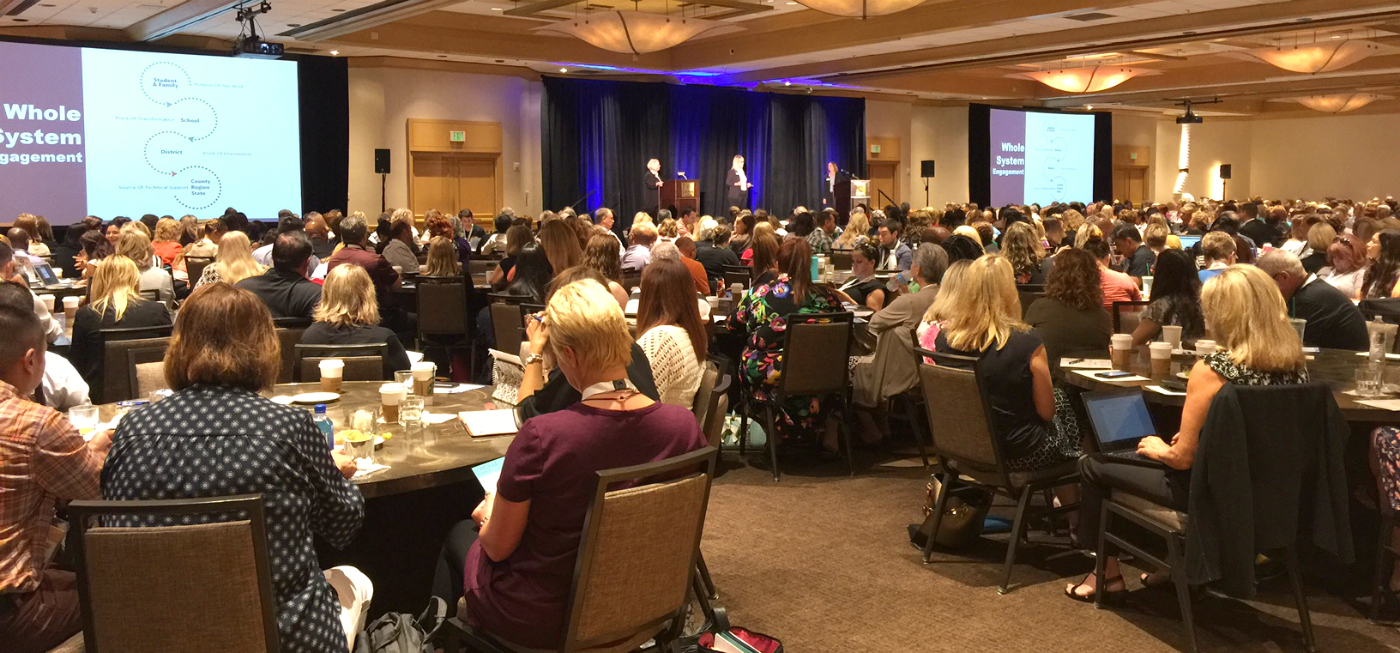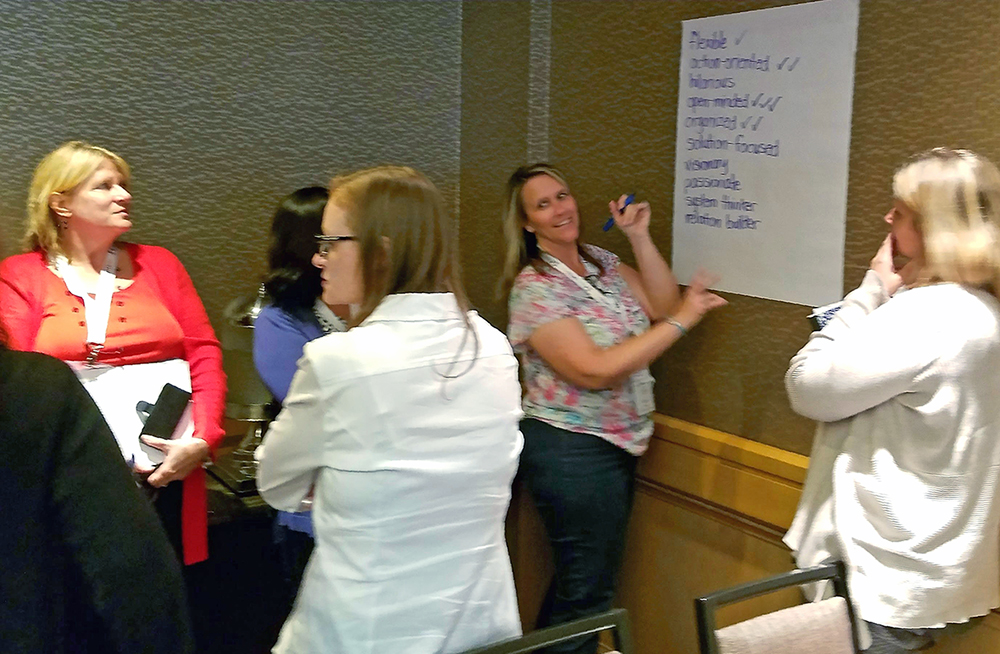 About 1,000 educators from California and beyond have gathered in Costa Mesa this week to learn more about establishing schoolwide frameworks that integrate academic, behavioral and social-emotional supports to benefit the whole child.
About 1,000 educators from California and beyond have gathered in Costa Mesa this week to learn more about establishing schoolwide frameworks that integrate academic, behavioral and social-emotional supports to benefit the whole child.
The 2017 National MTSS Professional Learning Institute, held Wednesday and Thursday at the Hilton Orange County, is centered on the expanding use of what’s known as a multi-tiered system of support, or MTSS, in schools and districts.
As we’ve reported previously, MTSS combines new and existing strategies to create a comprehensive, data-driven framework based on the strengths of each school. The idea is to provide core supports for all students, additional assistance for some and targeted interventions for those with the greatest needs. (These make up the “tiers” in multi-tiered system of support.)
Last year, California tapped the Orange County Department of Education as the lead agency on a $30 million initiative to scale up MTSS statewide. OCDE, which recently awarded the first batch of subgrants to 105 schools, districts and county offices, is also collaborating with the Butte County Office of Education and the SWIFT Center, which provides technical assistance.

Emphasizing the comprehensive nature of MTSS, the theme of the two-day conference — and indeed the entire initiative — is “All Means All.” Learning sessions and activities have been designed to show participants how school districts in California and elsewhere across the U.S. are building effective MTSS frameworks and using data to improve student outcomes.
Breakout sessions covered topics including how schools can better introduce MTSS practices in classrooms, how teachers can improve support for English learners and struggling readers, and how support differs for students across elementary, middle and high schools.
“One of the biggest things to take away is that student data, not the clock, should determine a student’s day,” Chris Davis, a program specialist with OCDE, said during a Wednesday afternoon session.
Other speakers said well-rounded student support systems should lead to lower suspension and expulsion figures, fewer chronically absent students, fewer instances of bullying, higher graduation rates, and improved academic achievement across all student groups.
Wednesday’s featured speakers included Michael Yudin, a former assistant secretary for special education and rehabilitative services for the U.S. Department of Education, where he served in a number of capacities during the Obama administration; and Katie Novak, who is an education consultant, author and assistant superintendent of schools in Massachusetts.
The 2017 National MTSS Professional Learning Institute resumes Thursday at the Hilton Orange County. For more information, visit http://2017mtsspli.ocde.us.
Fermin Leal contributed to this report.
